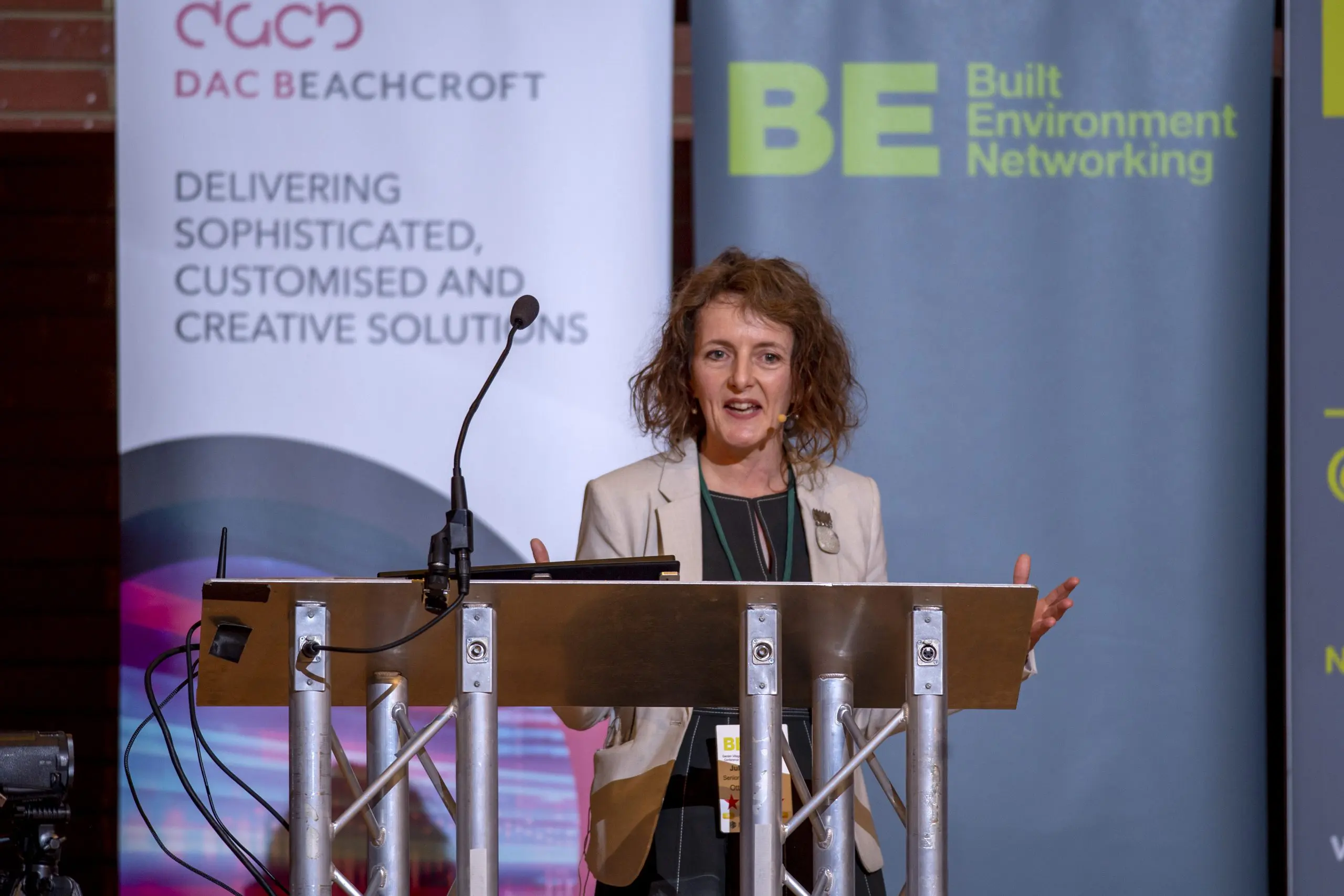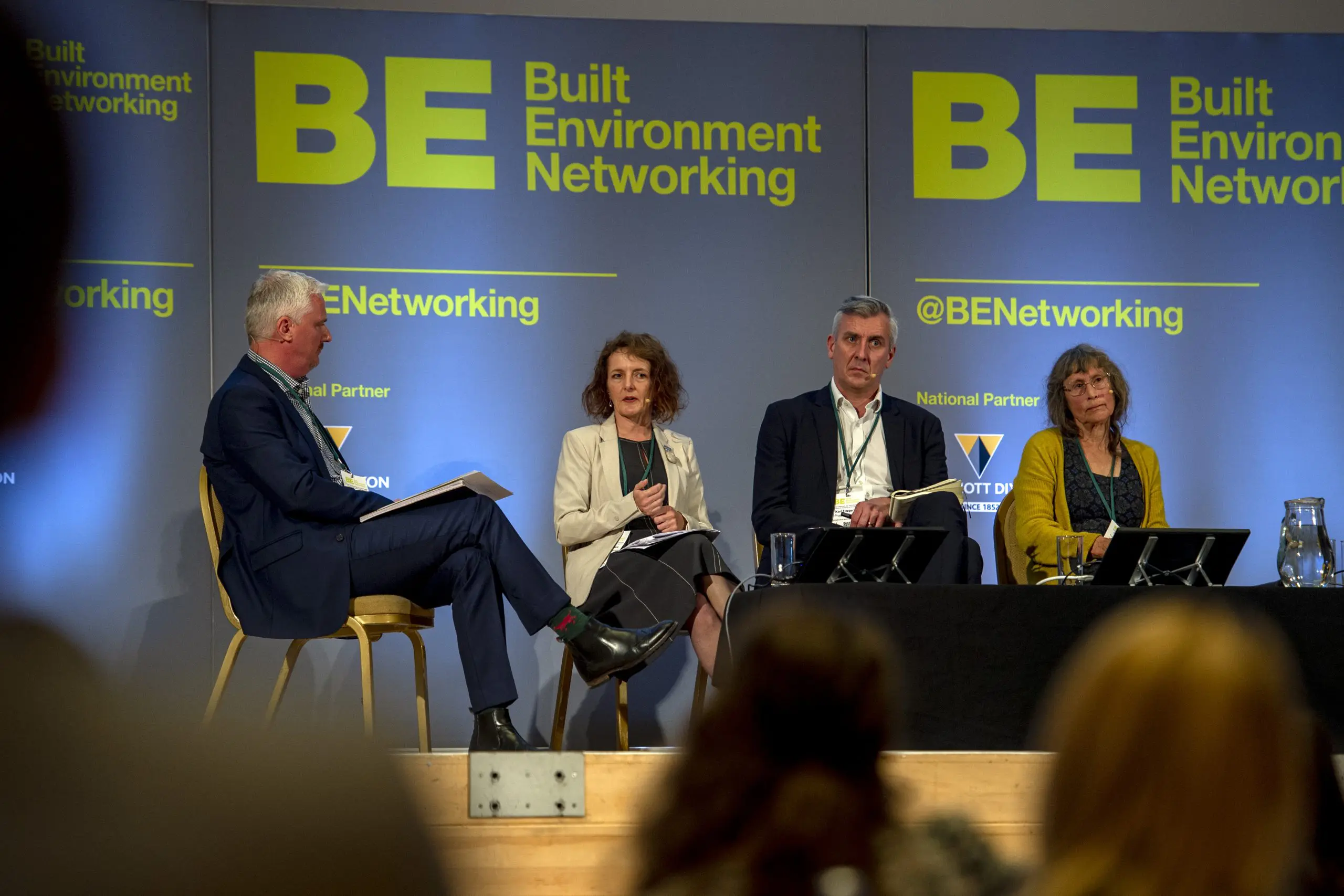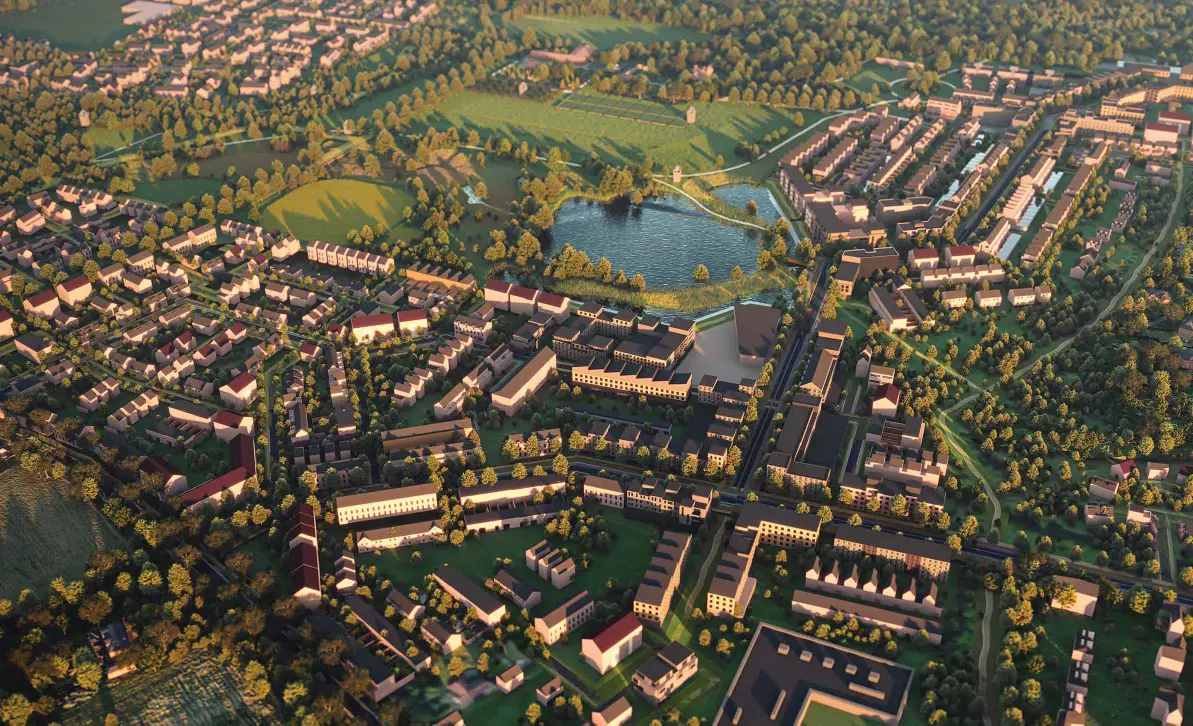Planning application for early infrastructure available to view
12 March 2025
15 October 2021
We had the pleasure of interviewing Julia Wallace, our Senior Project Manager, before she spoke at the Garden Villages and New Towns Development Conference this month. From insights on active travel and the results of the phase one consultation to green infrastructure and heritage, read Julia’s update on the project below.

How will Otterpool Park help to provide for local housing needs within Kent?
The main challenge of buying a home today is that there simply aren’t enough of them, and our intention is for Otterpool Park to address that. It’s important to recognise that by simply building more houses, you start to resolve the undersupply and affordability issue.
It’s also about getting the mix of homes right, and that is something Otterpool Park will address to ensure we have different sizes and types of properties to suit people at all stages of life.
Our planning application accounts for delivering 8,500 over 30 years if approved, and 22% of those would be affordable.
What will you be doing to ensure active and public transport is accessible for residents of Otterpool Park?
We want to encourage people to use their cars less, so we can help them lead active lives. All day-to-day facilities will be ten minutes’ walk from people’s homes.
There will be a network of cycleways and paths right across the town, as well as cycle parking and storage, cycle hire and car clubs delivered through a series of mobility hubs. Footpaths will connect up to existing routes into the countryside.
The site has an existing train station and we have planned this to be a gateway into the development as well as serve as a transport hub, with onward choices for cycle hire and local public transport.
What was the result of your phase one public consultation and how do you ensure local residents’ views are incorporated?
Phase one of Otterpool Park includes around 1900 homes, the town centre, Westenhanger Castle, the station and a major new park. this will form the heart of the town, so it’s important that we involve a wide range of people in the masterplanning process. The draft plan was then presented at two virtual public information events in March attended by 135 people, which meant we could continue with our community engagement work in a Covid-safe manner.
These sessions have been published on the Otterpool Park website giving people who weren’t able to attend the opportunity to find out about phase one too.
We had a good response to our follow-up questionnaire with some really insightful comments and suggestions about how we can create a vibrant town centre, which we are working through now ahead of final proposals being prepared. People expressed a real range of views about transport and in particular the use of private cars.

How will Otterpool Park create new jobs and what are the core areas of employment you will be focusing on?
The district, and in particular nearby Folkestone, has a thriving creative, digital and tech business scene.
Workspace for these businesses is in high demand and we believe that there is an opportunity for Otterpool Park to complement what’s happening in Folkestone and become home to these types of companies. Future residents will be able to work close to where they live and close to where their children go to school and childcare.
Our future plans to upgrade Westenhanger rail station will bring even easier access to London, and our ambition is to provide for hybrid workers – perhaps working one or two days in London and the rest from home or from one of our flexible business hub spaces.
We are also seeing an interest in London-based businesses having a hub office at Otterpool Park, taking advantage of our proximity to London and best value commercial property prices.
There will be jobs for keyworkers at schools, medical centres and in the community, as well as retail and hospitality jobs.
We anticipate around 9,000 jobs will be created across 30 years.

Otterpool Park will have key natural assets, including creating a new public park. How are you ensuring that green infrastructure is protected and supported?
We are working closely with environmental experts in many areas, including natural landscape, wildlife, pollution, energy and sustainability.
Our proposals for Otterpool Park incorporate expansive green space and landscaping in the form of parks, meadows, woodland and riverside, as well as allotments. In all, around half the site will be green space and our ambition is for a 20% net gain to biodiversity across the site.
In what ways has the team behind Otterpool Park incorporated best practice from historic and contemporary garden villages?
Garden City Principles have driven our masterplan and the delivery of Otterpool Park from the start. It has been designed with sustainability and longevity at its core and will be a place for everyone with a wide range of home types, tenures, activities and landscapes.
We have looked at styles of European cities and have been on study visits to Letchworth, Welwyn Garden City and several new communities in the UK including Poundbury. There are lessons to be learnt from all of these places (positive and negative), but there is a perfect replicable template. A sense of place and identity needs also to be driven by its location and context.
Delivery of a vision over the long term is fundamental to garden city principles, and Otterpool Park LLP (wholly owned by Folkestone and Hythe District Council) has been set up as a delivery vehicle for this purpose. The LLP can also ensure that stewardship of community assets is properly planned for.
The station building at Westenhanger is an important gateway into the development and we’ve already started designs for the Station Square, looking at examples of this elsewhere in the UK including Cambridge.
What are you most anticipating about the Garden Villages and New Towns Development Conference?
The conference is a perfectly timed opportunity for people in the sector to share and discuss how Garden Town projects across the UK are meeting the needs of housing and community and in particular look at the impact and influence of issues like Covid-19 and the climate emergency on Garden Town planning.
12 March 2025
26 February 2025
10 February 2025
Sign up for the latest news on events and progress at Otterpool Park.